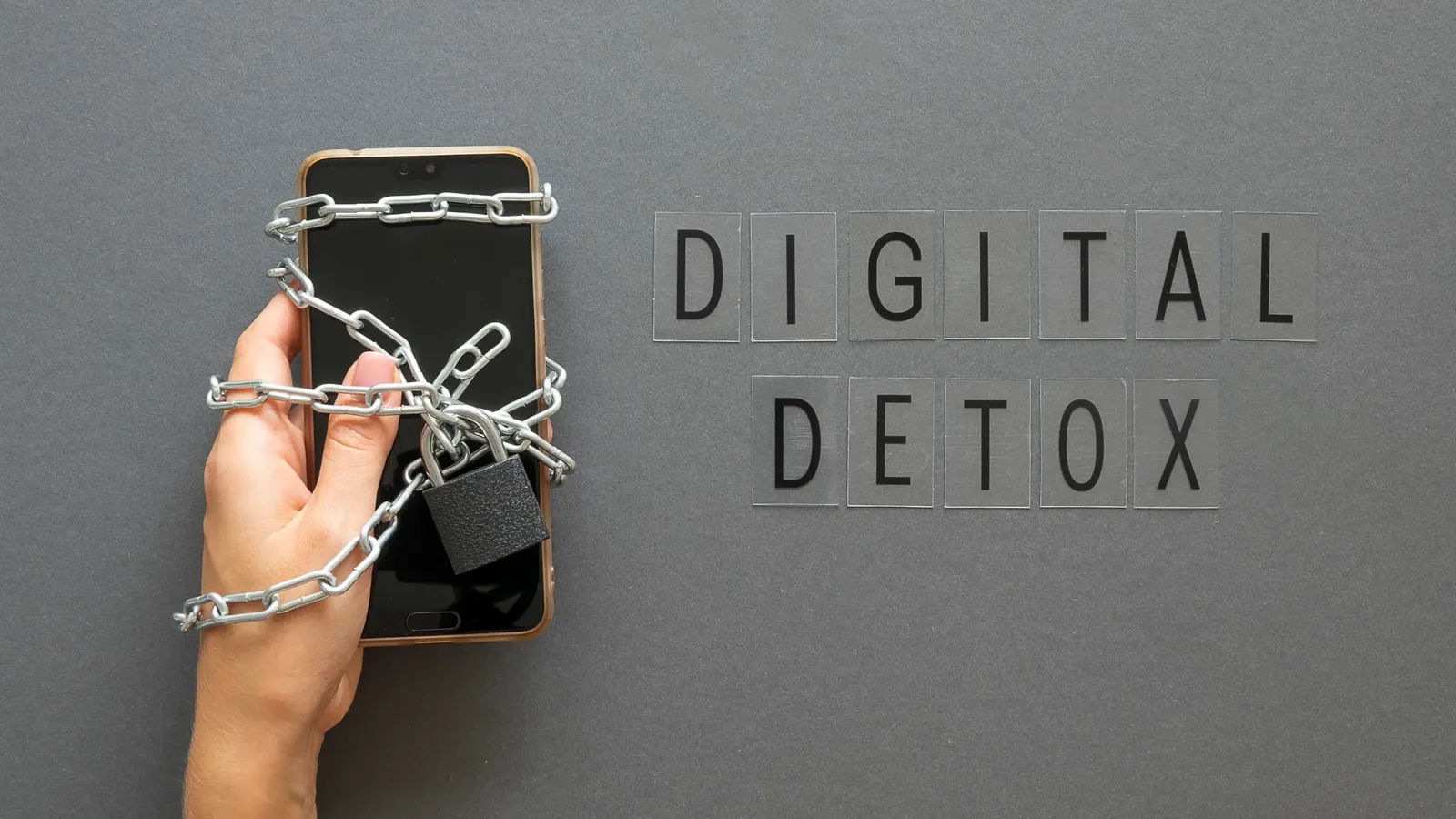In today’s world, the line between being connected and being disconnected is increasingly blurry. From the moment we wake up to the sound of our phones buzzing with notifications to the endless scroll through social media before bed, we are constantly plugged into a web of information, relationships, and updates. But the question arises—Can you really disconnect in a world where being connected has become the norm?
The short answer is: Yes, but it’s not as easy as it sounds. This article explores why disconnecting feels like a challenge, how we can reclaim moments of peace in an always-connected world, and the benefits of doing so.
The Digital Age: Always-On Culture
We live in an always-on world. Whether it’s through smartphones, tablets, or laptops, connectivity has become an integral part of our daily lives. At first glance, it seems like a great thing. The ability to communicate instantly, access any information at the touch of a button, and stay up to date with what’s happening around the world are all powerful tools.
But there’s a darker side to this hyper-connectivity. Studies have shown that the average person checks their phone more than 150 times a day. Email, social media, work messages, and even push notifications from news outlets pull our attention in every direction. With each ping, we are invited into the lives of others, invited to react, and invited to contribute—whether we want to or not.
This constant stream of digital information creates a pressure to stay engaged. The fear of missing out (FOMO) looms large, and with it, the notion that disconnecting means falling behind, losing touch, or being left out.
The Paradox of Choice
In theory, the digital age offers unparalleled freedom. We can choose how we interact with the world, when and where we connect, and even how we portray ourselves. However, this abundance of choices comes with its own set of challenges.
In a hyper-connected world, we are faced with too many options for connection. While that may sound like an advantage, it often leads to what’s known as the “paradox of choice.” The more choices we have, the more overwhelmed we become, and the harder it is to make decisions. This isn’t just true for consumer goods—our social and emotional lives are also subject to this overload.
Social media, for instance, offers an endless variety of ways to connect—Facebook, Twitter, Instagram, LinkedIn, and countless niche platforms. Each one demands our attention, and over time, we start to feel pulled in all directions. The idea of disconnecting becomes increasingly difficult because we don’t want to lose out on any of these connections, even though they are often superficial and fleeting.

The Impact on Mental Health
The impact of our digital lives on mental health is well-documented. Studies have shown that excessive screen time can lead to anxiety, depression, and a feeling of isolation. While social media is designed to keep us connected, it often has the opposite effect. Instead of genuine relationships, many people experience feelings of inadequacy, jealousy, or loneliness after browsing their feeds. The curated nature of online content—perfect vacation photos, glowing achievements, and flawless selfies—often distorts our perceptions of reality.
Moreover, the fear of missing out (FOMO) can be exacerbated by constant connectivity. When you’re always in the loop, you never really feel like you’re truly present in any moment. Every social interaction is tinged with the anxiety of what you might be missing elsewhere. When you check your phone in the middle of a conversation, or scroll through your social media while on a date, you’re not just disconnecting from the person in front of you; you’re disconnecting from your own experience.
Is Disconnecting Even Possible?
In a world that’s built around staying connected, is it even possible to truly disconnect? In short: Yes, but it requires effort, discipline, and a shift in perspective.
1. Digital Detox: A Temporary Escape
One of the most effective ways to disconnect is by engaging in a digital detox. This doesn’t mean completely abandoning technology—it simply means taking a conscious break from the constant barrage of information. A digital detox could mean:
- Turning off notifications for a certain period of time (for example, during meals or before bed).
- Setting aside tech-free zones in your home or office (a “no-phone” rule at the dinner table).
- Spending a day or weekend offline, where you don’t check emails, social media, or even watch TV.
A digital detox might feel uncomfortable at first. After all, our smartphones and devices are often our go-to distractions in moments of boredom. But over time, the break can bring significant benefits, such as improved focus, reduced stress, and an increased sense of presence.
2. Mindful Technology Use
Disconnecting doesn’t have to mean rejecting technology altogether. It’s possible to create healthier boundaries with tech. Mindful technology use involves consciously deciding when, where, and how we engage with digital devices. Some practices include:
- Setting limits on your screen time (many smartphones now offer features that allow you to monitor and limit your usage).
- Scheduling “phone-free” time where you focus solely on non-digital activities (reading, cooking, exercising).
- Engaging in tech-free hobbies like gardening, painting, or playing an instrument.
Being mindful about how and when we use technology can help us reclaim our time and our attention, leading to a more balanced life.
3. Reconnecting with the Physical World
Sometimes, the best way to disconnect from the digital world is to reconnect with the physical one. Nature is an excellent antidote to digital overload. Whether it’s hiking, walking on the beach, or simply sitting in a park, nature provides a space for reflection, relaxation, and mental rejuvenation.
Spending time in nature has been linked to improved mental health, reduced stress, and a greater sense of well-being. Engaging in outdoor activities allows us to be present in the moment, away from screens, and more attuned to the rhythms of the world around us.
4. Building Real Relationships
The more connected we become online, the less connected we sometimes feel in person. It’s crucial to foster deep, meaningful relationships with others—relationships that are based on genuine, face-to-face interactions rather than virtual ones.

Spend time with friends and family, engage in deep conversations, and make time for in-person experiences that technology can’t replicate. Whether it’s a weekend getaway with loved ones or simply enjoying a meal together without distractions, these moments of connection can help you feel more grounded.
The Benefits of Disconnecting
The benefits of disconnecting in a connected world are undeniable. Here are just a few of the positive changes you can experience:
1. Increased Productivity
While it may seem counterintuitive, taking breaks from your phone or computer can actually make you more productive. Studies show that taking time away from screens helps to improve focus, concentration, and decision-making. By reducing distractions, you give yourself more time to engage in deep work, which can lead to higher-quality output.
2. Improved Mental Health
Disconnecting helps to reduce stress and anxiety. Without the constant pressure to keep up with notifications or social media posts, your mind can relax and focus on the present moment. The result? A greater sense of calm, peace, and overall well-being.
3. Better Sleep
Too much screen time, especially before bed, can interfere with sleep patterns. The blue light emitted from screens disrupts the body’s natural circadian rhythms, making it harder to fall asleep. By disconnecting from digital devices before bedtime, you can improve your sleep quality and wake up feeling more refreshed.
4. A Greater Sense of Presence
When you’re constantly connected, it’s easy to feel distracted and disconnected from your surroundings. By choosing to disconnect at times, you can reclaim your ability to be fully present. Whether you’re spending time with family, reading a book, or taking a walk, being truly present enhances the quality of your experiences and relationships.
Conclusion
In a world that is constantly evolving and connecting us in new ways, the desire to disconnect may seem counterproductive. However, the ability to step back from the digital world, even temporarily, can be a powerful tool for personal growth and well-being. Whether it’s through a digital detox, mindful technology use, or spending more time in nature, there are countless ways to regain control of your time, your focus, and your mental health.
The key lies in understanding that while the world around us may be perpetually connected, we have the power to decide when and how we engage. So yes, you can disconnect—and it’s more important than ever to do so.











































Discussion about this post